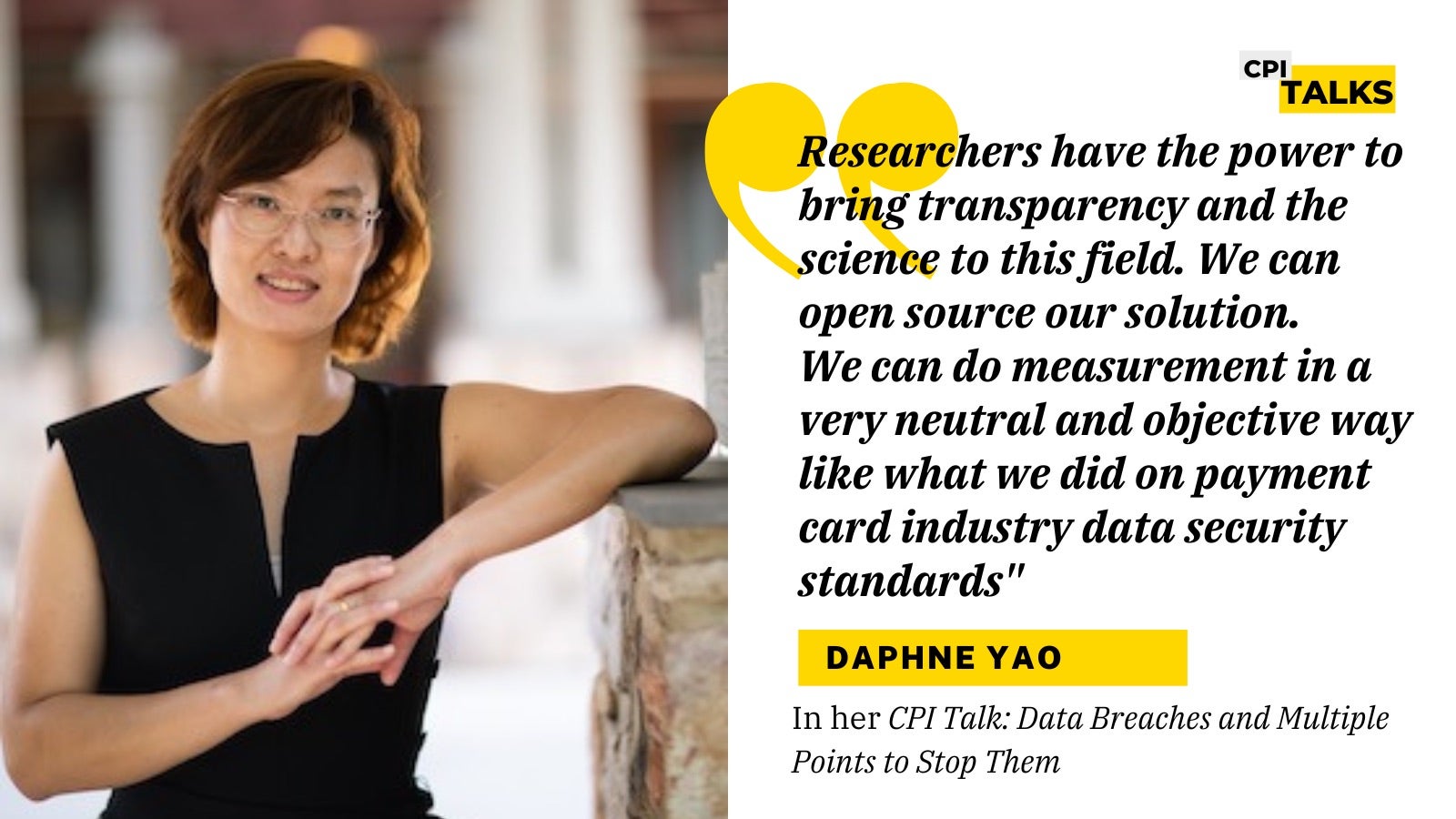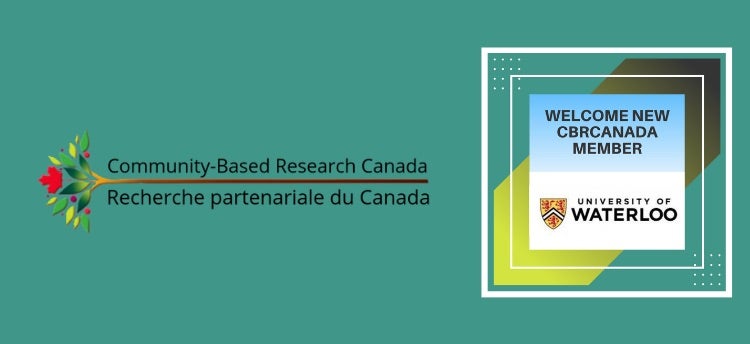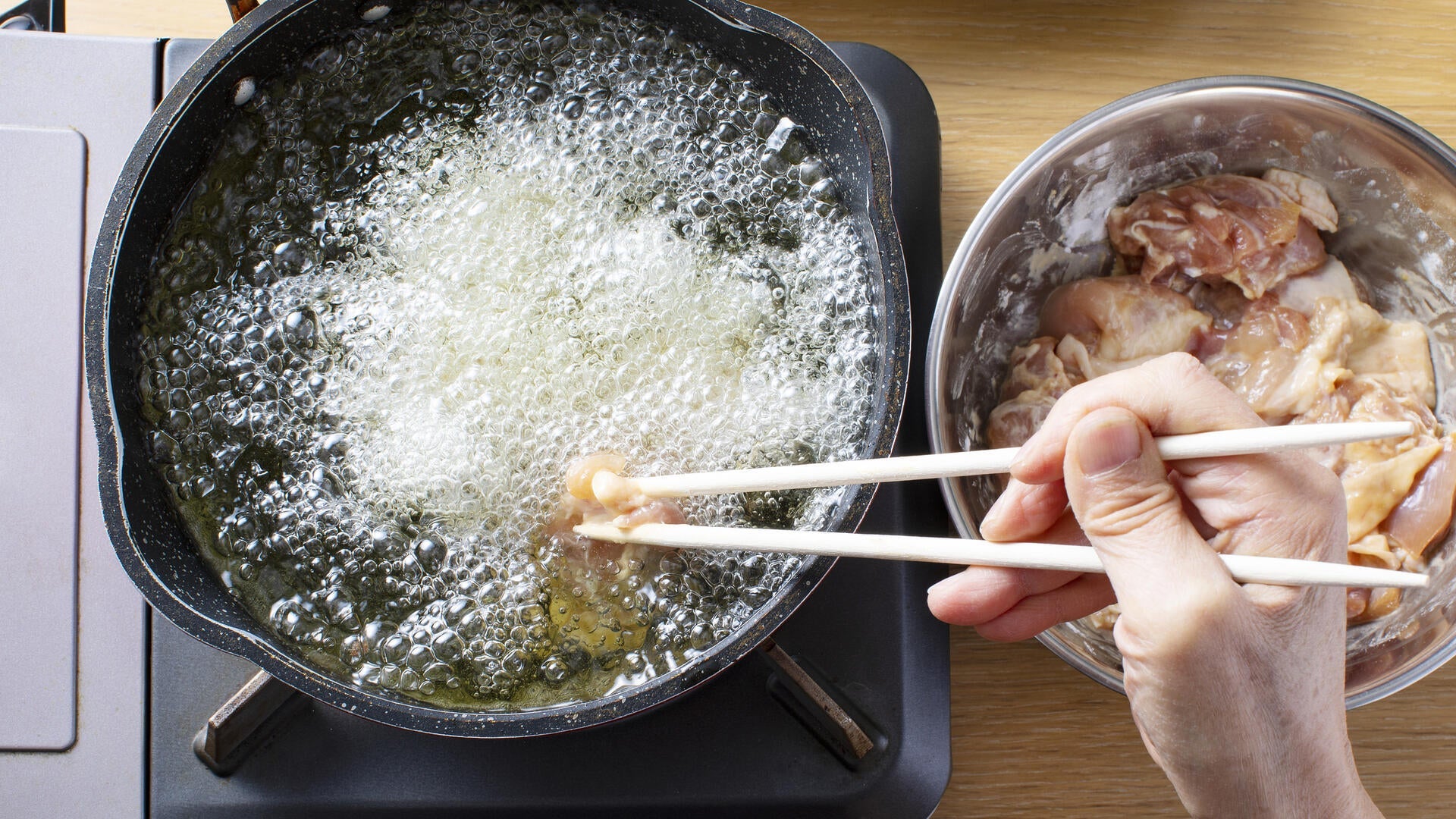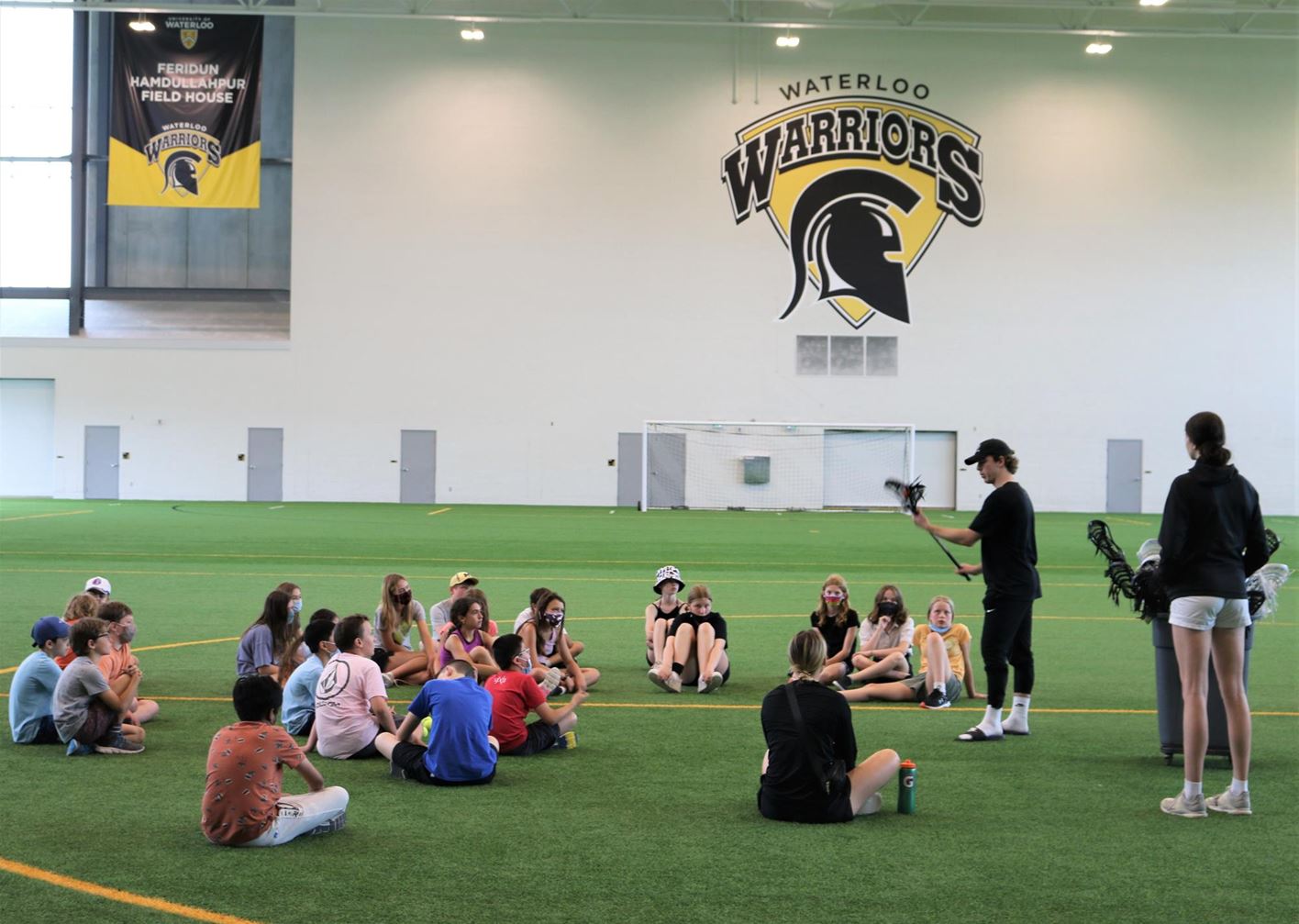- WISA releases first Annual Report
- Academic Calendar and Curriculum Management at Waterloo
- Watch how to overcome a data breach
- New membership with Community-Based Research Canada
- How wet chopsticks hitting hot oil advance our understanding of physics
- Warriors bring back play with new "Play Days" program
Editor:
Brandon Sweet
University Communications
bulletin@uwaterloo.ca
WISA releases first Annual Report

A mesage from the Waterloo Institute for Sustainable Aeronautics.
On Friday, June 24, 2022 the Waterloo Institute for Sustainable Aeronautics (WISA) released its first Annual Report, sharing highlights from the institute’s first year of operations in its mission to be the world’s leading hub for sustainable aeronautical research, technology, and education.
"As an aviation professor with deep connections to the air transport sector, I was aware of the many challenges being faced as operators, governments, and manufacturers began to imagine aeronautics within a post-pandemic world," said WISA's Director, Suzanne Kearns. "Pre-pandemic, the sector already faced tremendous disruption associated with a lack of personnel, growing environmental emissions, and the rapid evolution of technology. These challenges inform the three pillars of WISA’s mission – to support the sector to improve social, environmental, and economic sustainability."
"Confronting these challenges will require a collaborative approach that draws on expertise across disciplines and industries. While the pandemic has been a trying time for us all, another factor also emerged; with aviation colleagues around the world out of work for more than 18 months, we witnessed a collective shift in perspective. Perhaps the difficulties we all faced fostered a new perspective in our field – that we are all connected and impacted by global events. This renewed awareness of our collective strengths can be a catalyst, helping us work together to find innovative solutions," said Kearns.
Academic Calendar and Curriculum Management at Waterloo
A message from Cathy Newell Kelly (Office of the Registrar), Jeff Casello (Graduate Studies and Postdoctoral Affairs), and Bruce Campbell (Information Systems & Technology), the Academic Calendar and Curriculum Management project sponsors.
The Academic Calendar and Curriculum Management project team (a partnership between the Office of the Registrar, Graduate Studies and Postdoctoral Affairs, and Information Systems and Technology) is excited to announce that Kuali has been selected to provide an academic calendar and curriculum management solution for the campus. Kuali already has a working relationship with the University as the Office of Research utilizes their research solution.
Kuali provides an academic calendar and forms-based curriculum management platform that enables campus stakeholders to submit, track, and approve curriculum motions across the University's governance model and assists administrators with an updated solution to publish the academic calendars, which will have enhanced features for all users of the academic calendars. This solution will eventually replace existing systems used to publish academic calendars - the Academic Calendar Maintenance System (Undergraduate Studies Academic Calendar) and Web Content Management System (Graduate Studies Academic Calendar) - and allow for an updated and consistent look and feel.
Implementation of the new academic calendar and curriculum management software begins with a business process review. The goal is to create and build curriculum management forms for undergraduate and graduate courses, programs, and academic regulations. The project team has already begun engaging with key stakeholders, which will help inform the implementation timeline for the curriculum management and academic calendar builds.
We look forward to sharing more information about these exciting new tools once the initial business process review is complete. Want to stay connected? Visit the project website.
Watch how to overcome a data breach
This article was originally published on Waterloo Cybersecurity and Privacy Institute's website.

Target and Equifax had one of the biggest data breaches ever, with hackers stealing millions of customers’ credit card information. Within a click, these esteemed companies lost their reputations and customer faith overnight. What surprised many was the nature of these attacks. Rather than infiltrating from the main systems, some of these attacks happened through a third-party vendor. For instance, Target's data breach occurred through their HVAC (Heating, ventilation, and air conditioning) system. As well, Target and Equifax are high-profile and large companies— so how come these attacks happen? Is there technology in place that can protect a company's information such as customers' credit card information? What can company executives, researchers, and the public do to overcome data breaches?
Back in December 2021, Virginia Tech’s Daphne Yao hosted our CPI Talk: Data Breaches and Multiple Points to Stop. She analyzed the Target and Equifax Data breaches and advised how we can prevent, detect, or stop a data breach!
Watch the demonstration:
New membership with Community-Based Research Canada

A message from the Office of Research.
A one-year membership with Community-Based Research Canada (CBRCanada) is now available to all University of Waterloo faculty, staff and students.
The mission of CBRCanada is to advance community-based research (CBR) excellence in Canada by strengthening partnerships, bridging capacity, mobilizing knowledge, and championing community-based research among individuals, communities and institutions.
More information about opportunities including conferences, awards, community of practice, connections to local and international partners, training, and more can be found on the CBRC website and by subscribing to the CBRC e-newsletter.
If you have any questions, please contact Sara Anderson or Nadine Quehl.
How wet chopsticks hitting hot oil advance our understanding of physics

This article was originally featured on Waterloo News.
Cooks throughout Asia put moist bamboo chopsticks into oil in a frying pan, watching the bubbles that form and listening to the sizzling sound they make as they burst to gauge the perfect cooking temperature. An international team of researchers used the technique as inspiration to learn about the complex physics behind wet chopsticks hitting hot oil.
“Many cookbooks teach this technique and it is widely used, but when we searched the academic literature, we couldn’t find any detailed scientific explanations,” said Zhao Pan, a mechanical and mechatronics engineering professor at the University of Waterloo. “We set out to provide one.”
“Members of our team speak seven different languages, but we couldn’t find any scientific investigation, and no one knows the history of the trick,” added lead author Akihito Kiyama of Utah State University.
The project involved experiments placing wet paper, moistened chopsticks and water droplets in hot oil, with the results recorded using sensitive microphones and high-speed cameras.
Researchers found the physics of frying food far more complex than they anticipated. To simplify their tests, they used moist pieces of paper and, later, water droplets as stand-ins for actual food.
“We found three distinct types of bubble events in our experiments: an explosion cavity, an elongated cavity and an oscillating cavity,” said Tadd Truscott, a professor at King Abdullah University of Science and Technology in Saudi Arabia.
Explosion cavities form when a water droplet enters hot oil and undergoes a micro-explosion due to the sudden temperature increase, forming a vapour bubble that can rupture the surface of the oil. Elongated cavities explode without rupturing the surface, while oscillating cavities are created when a water droplet is submerged, undergoes a multi-step explosion process and begins to oscillate before breaking up into numerous small bubbles.
The results have potential applications in scientific fields such as acoustic sensing of aerosol generation to inexpensively measure air pollution, new technology the researchers are now working on.
Pan, director of the Pan-Lab: An Interdisciplinary Kitchen for Fluid Physics at Waterloo, said the tests also showed that the trick used by deep-frying cooks works quite well.
“This simple eye and ear measurement is accurate to within about five to 10 per cent, which is pretty good when we consider that a typical temperature for frying food is higher than 150 degrees Celsius,” Pan said.
A paper on the project, Morphology of bubble dynamics and sound in heated oil, appears in the journal Physics of Fluids. Rafsan Rabbi, Som Dutta and John Allen also contributed.
Warriors bring back play with new "Play Days" program

This article was originally featured on the Waterloo Warriors website.
"Play is the foundation of learning, creativity, self-expression, and constructive problem-solving. It's how children wrestle with life to make it meaningful." Those words by American Author Susan Linn have never been more true and the Department of Athletics and Recreation is proud to be a small part in bringing play to children across our region.
With the recent development of a program called "Play Days", children in Grades 1-8 have been participating in a wide range of activities in the Feridun Hamdullahpur Field House over the past month and a half.
Play Days aim to provide youth with a way to meaningfully participate in sport and games originating from indigenous culture. As we work towards reconciliation, participants will be introduced to Lacrosse, Rattler, Capture the Flag, Tatanka Tatanka, and more. The program uses the "Indigenous Games for Children" book from High Five and Parks Canada to teach about the history of how indigenous sports have shaped our current games and sports.
This program further aims to reinforce the impact that physical activity can have on social connection, performance in the classroom, and mental health. Activities will draw upon components from the Canadian Sport for Life Program, in alignment with the Ontario Curriculum.
"We are extremely proud to be hosting elementary aged children around the KW Region to promote physical activity as a means of maintaining positive physical and mental wellbeing, while interweaving some education around indigenous culture," said director of athletics and recreation, Roly Webster. "As we transition out of a very difficult two-year period of change and uncertainty for our youth, it is a critically important time to make physical activity a priority and we hope Play Days can play a small part in this."
Play Days are instructed by University of Waterloo students who have a passion for working with children and expertise in encouraging and facilitating physical activity.
The program was designed in conjunction with the Recreation and Leisure Department through the hiring of students in their practicum program and was made possible through a Canada Summer Job Grant that has helped support instructors while reducing costs for participants. Play Days was also built with the intention of impacting the KW community through access to play and activity resources.
Link of the day
When and Where to get support
Students can visit the Student Success Office online for supports including academic development, international student resources, immigration consulting, leadership development, exchange and study abroad, and opportunities to get involved.
Instructors looking for targeted support for developing online components for blended learning courses, transitioning remote to fully online courses, revising current online courses, and more please visit Agile Development | Centre for Extended Learning | University of Waterloo (uwaterloo.ca).
Instructors can visit the Keep Learning website to get support on adapting their teaching and learning plans for an online environment.
Course templates are available within your course in LEARN to help you build and edit your content and assignment pages quickly.
The following workshops, webinars, and events are offered by the KL team (CTE, CEL, ITMS, LIB):
-
Scholarship of Teaching and Learning (SoTL) Methods – self-directed, continuous self-enrollment course in LEARN.
-
Independent Blended Course Design (iBlend) - self-directed, continuous self-enrollment course in LEARN.
-
Copyright Overview for Waterloo Instructors and Staff - self-directed, continuous self-enrollment course in LEARN.
-
Independent Remote Course Design Essentials (iReCoDE) - self-directed, continuous self-enrollment course in LEARN.
-
Supporting Student Mental Health (for Instructors) – self-directed, continuous self-enrollment course in LEARN.
-
SoTL Stories, Wednesday, June 15, 1:00 p.m. to 2:00 p.m.
-
Research & Reconciliation: Unsettling Ways of Knowing Through Indigenous Relationships: A Learning Circle Series (CTE7013), Thursday, June 16, 1:00 p.m.
Supports are available for employees returning to campus. Visit IST’s Hybrid Work and Technology guidelines and workplace protocols to assist with the transition.
The Writing and Communication Centre has in-person and virtual services to support grad and undergrad students, postdocs and faculty with any writing or communication project. Services include one-to-one appointments, drop-ins at Dana Porter Library, online workshops, writing groups, English conversation practice, and custom in-class workshops.
Co-op students can get help finding a job and find supports to successfully work remotely, develop new skills, access wellness and career information, and contact a co-op or career advisor.
The Centre for Career Action (CCA) has services and programs to support undergrads, grad students, postdocs, alumni, and employees in figuring out what they value, what they’re good at, and how to access meaningful work, co-op, volunteer, or graduate/professional school opportunities. Questions about CCA's services? Live chat, call 519-888-4047, or stop by our front desk in the Tatham Centre 8:30 a.m. to 4:30 p.m., Monday to Friday.
Drop-in to Warrior Virtual Study Halls on Wednesdays from 5:30 p.m. to 7:00 p.m. Come together in this virtual space to set goals and work independently or in groups each week.
Renison's English Language Institute continues to offer virtual events and workshops to help students practice their English language skills.
If you feel overwhelmed or anxious and need to talk to somebody, please contact the University’s Campus Wellness services, either Health Services or Counselling Services. You can also contact the University's Centre for Mental Health Research and Treatment. Good2Talk is a post-secondary student helpline available to all students.
The Library is open with expanded hours for access to book stacks, drop-in individual study space, bookable group study rooms, drop-in access to computers and printers, book pick-up services and IST Help Desk support. Librarian consultations, Special Collections & Archives and the Geospatial Centre are available by appointment. Full details on current services and hours are available on the Library’s COVID-19 Update webpage.
The Faculty Association of the University of Waterloo (FAUW) continues to advocate for its members. Check out the FAUW blog for more information.
The University of Waterloo Staff Association (UWSA) continues to advocate for its members. Check out the UWSA blog for more information.
The Sexual Violence Prevention and Response Office (SVPRO) supports all members of the University of Waterloo campus community who have experienced, or been impacted, by sexual violence. This includes all students, staff, faculty and visitors on the main campus, the satellite campuses, and at the affiliated and federated Waterloo Institutes and Colleges. For support, email: svpro@uwaterloo.ca or visit the SVPRO website.
The Office of Indigenous Relations is a central hub that provides guidance, support, and resources to all Indigenous and non-Indigenous campus community members and oversees the University's Indigenization strategy.
The Waterloo Indigenous Student Centre, based at St. Paul’s University College, provides support and resources for Indigenous students, and educational outreach programs for the broader community, including lectures, and events.
WUSA supports for students:
Peer support - MATES, Glow Centre, RAISE, Women’s Centre - Visit https://wusa.ca/services/wusa-peer-support to book an appointment either in person or online for the Fall term.
Food Support Service food hampers are currently available from the Turnkey Desk 24/7 in the Student Life Centre. Drop off locations are also open again in SLC, DC, DP, SCH and all residences.
Co-op Connection all available online. Check https://wusa.ca for more details.
Centre for Academic Policy Support - CAPS is here to assist Waterloo undergraduates throughout their experience in navigating academic policy in the instances of filing petitions, grievances and appeals. Please contact them at caps@wusa.ca. More information is available.
WUSA Student Legal Protection Program - Seeking legal counsel can be intimidating, especially if it’s your first time facing a legal issue. The legal assistance helpline provides quick access to legal advice in any area of law, including criminal. Just call 1-833-202-4571.
Empower Me is a confidential mental health and wellness service that connects students with qualified counsellors 24/7. They can be reached at 1-833-628-5589.
GSA-UW supports for graduate students:
The Graduate Student Association (GSA-UW) supports students’ academic and social experience and promotes their well-being.
Advising and Support - The GSA advises graduate students experiencing challenges and can help with navigating university policies & filing a grievance, appeal, or petition.
Mental Health covered by the Health Plan - The GSA Health Plan now has an 80 per cent coverage rate (up to $800/year) for Mental Health Practitioners. Your plan includes coverage for psychologists, registered social workers, psychotherapists, and clinical counselors.
Dental Care - The GSA Dental Plan covers 60 to 70 per cent of your dental costs and by visiting dental professionals who are members of the Studentcare Networks, you can receive an additional 20 to 30 per cent coverage.
Student Legal Protection Program - Your GSA fees give you access to unlimited legal advice, accessible via a toll-free helpline: +1-833-202-4571. This advice covers topics including housing disputes, employment disputes, and disputes with an academic institution.
The Graduate House: Open Monday to Tuesday 11:30 a.m. to 7:00 p.m. and Wednesday to Friday 11:30 a.m. to 9:00 p.m. We’re open to all students, faculty, staff, and community members. The Graduate House is a community space run by the GSA-UW. We’re adding new items to the menu. Graduate students who paid their fees can get discounts and free coffee.
When and Where (but mostly when)
Warriors vs. Laurier Blood Donation Battle. Join our “Waterloo Warriors” team on the Blood.ca website or app. #ItsInYouToGive
Warriors Custom Apparel Program June 22 – July 13. Purchase customized team specific gear to get ready for the 2022-2023 season. Hoodies, Hats, Jerseys, T-shirts and more. Buy now!
NEW - W Store's Spend More Save More Event, 10:00 a.m. - 4:00 p.m. Tuesday, June 28 and Wednesday, June 29
Lecture and Workshop with Visiting Researcher Georg Marschnig, Universität Graz, Tuesday, June 28, lecture from 3:00 p.m. to 4:00 p.m., “’Du host lai oin hoimat’ Memories and Identities of German speaking Migrants in Canada, the US and Europe" and workshop from 4:00 p.m. to 5:00 p.m., “www.erinnerungslandkarte.at- An online Plattform for Austrian Memorial Sites for Victims of National Socialism”, HH373.
Entrepreneurial Ph.D. Fellowship Information Session Wednesday, June 29, 12 noon to 1:00 p.m., Conrad School or Zoom. Registration required.
NEW - Warriors Youth Summer Day Camps, July 4 to September 2. Open to boys and girls age 5-18. Baseball, Basketball, Football, Hockey, Multi-Sport and Games & Volleyball. Register today.
Master of Taxation, Virtual Information Session Virtual Info Session Tuesday July 5th at 5:30 p.m. Learn more about the MTax advantage
Valuation of water quality in Canada: An overview of the upcoming policy needs and challenges, presented by Jean-Michel Larivière, Environment and Climate Change Canada. Part of the Water Institute's webinar series: The Value of Water in Canada. Wednesday, July 6, 12:00 p.m.
WaterTalk - Nature Water: A journal for all water-related research, presented by Fabio Pulizzi. Thursday, July 7, 10:00 a.m.